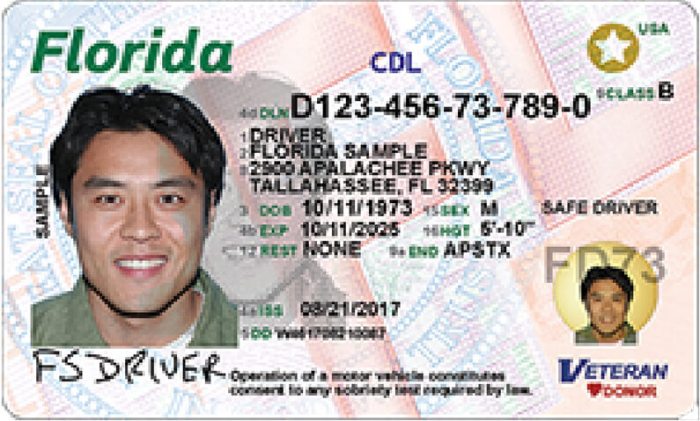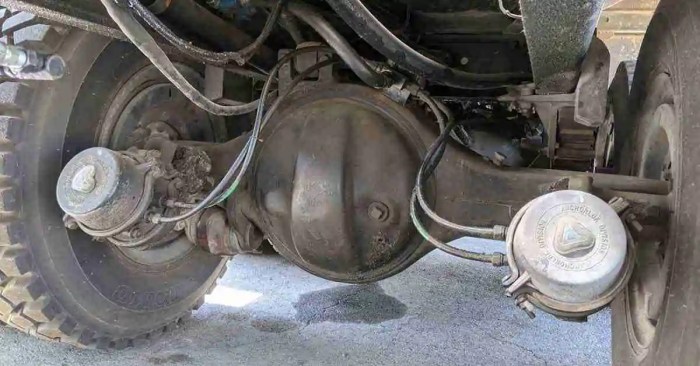Cdl air brake test florida – Prepare to conquer the CDL Air Brake Test in Florida with our comprehensive guide. We’ll delve into the intricacies of air brake systems, equipping you with the knowledge and skills to ace this crucial exam. Get ready to navigate the test with confidence and secure your CDL with an air brake endorsement.
This guide will provide you with a thorough understanding of the test format, preparation strategies, and troubleshooting techniques. By the end, you’ll be fully prepared to demonstrate your proficiency in air brake systems and earn your CDL air brake endorsement.
Florida CDL Air Brake Test Overview
The Florida CDL air brake test evaluates a driver’s knowledge and skills in operating commercial motor vehicles equipped with air brake systems. It ensures drivers have a thorough understanding of air brake components, their operation, and troubleshooting techniques to maintain safe vehicle operation.
The test consists of two parts: a written exam and a skills test. The written exam covers air brake system theory, including components, principles of operation, and maintenance procedures. The skills test involves demonstrating proficiency in inspecting, adjusting, and troubleshooting air brake systems on a commercial vehicle.
Types of Air Brake Systems
There are two main types of air brake systems used in commercial vehicles: single-circuit and dual-circuit systems.
- Single-circuit systemsuse a single air reservoir to supply air to all the brake chambers. If there is a leak in the system, all the brakes will be affected.
- Dual-circuit systemsuse two separate air reservoirs, one for the front brakes and one for the rear brakes. If there is a leak in one circuit, the other circuit will still be able to provide braking power.
Test Preparation and Study Materials

Preparing for the Florida CDL Air Brake Test is crucial for success. Here are some tips and strategies:
Begin by gathering reputable study materials, including textbooks, online courses, and practice tests. These resources provide comprehensive information on air brake systems, inspection procedures, and troubleshooting techniques. Ensure the materials align with the latest Florida CDL requirements and are from trusted sources.
Getting ready for your CDL air brake test in Florida? Don’t forget to check out Gen Korean BBQ for a delicious post-test meal. Their sides are a perfect complement to the savory flavors of Korean barbecue. Then, get back on track with your CDL air brake test preparation and ace it!
Online Resources
Numerous online platforms offer comprehensive study materials for the Florida CDL Air Brake Test. These platforms typically provide interactive lessons, practice tests, and downloadable resources. They offer flexibility and convenience, allowing you to study at your own pace and schedule.
Practice Tests
Practice tests are invaluable for assessing your knowledge and identifying areas for improvement. Take multiple practice tests to familiarize yourself with the test format, question types, and time constraints. This helps you develop confidence and identify areas where you need additional study.
Official Test Centers and Appointment Scheduling
To schedule your CDL Air Brake Test, locate the nearest official test center. You can find a list of approved test centers on the Florida Department of Highway Safety and Motor Vehicles (FLHSMV) website. Contact the test center directly to inquire about availability and schedule an appointment.
Air Brake System Inspection
Regularly inspecting your air brake system is crucial for maintaining its proper operation and ensuring your safety on the road. Here’s how to inspect the air brake system:
Compressor Inspection
Inspect the air compressor for any leaks, damage, or loose connections. Check the compressor’s belt tension and adjust it if necessary. Listen for any unusual noises or vibrations during operation.
Governor Inspection
The governor regulates the air pressure in the system. Inspect the governor for any leaks or damage. Ensure that the governor is properly adjusted to maintain the correct air pressure.
Reservoirs Inspection
Inspect the air reservoirs for any leaks, rust, or damage. Check the air pressure gauges to ensure they are within the specified range. Drain any condensation from the reservoirs regularly to prevent corrosion.
Leak Inspection
Conduct a thorough leak inspection of the entire air brake system. Use a soap solution to identify any leaks. Check all hoses, fittings, valves, and connections for any signs of air escaping.
Proper Operation
Test the air brake system to ensure it is operating properly. Apply the brakes and check for any signs of dragging or uneven braking. Listen for any unusual noises or vibrations during braking.
Importance of Maintenance
Regular maintenance and inspections are essential for the safe and efficient operation of your air brake system. Neglecting inspections can lead to undetected problems that could result in a catastrophic brake failure. By following these inspection procedures, you can help ensure the reliability and safety of your air brake system.
Air Brake Performance Tests

Air brake performance tests are crucial for ensuring the safety and reliability of commercial vehicles. These tests evaluate the functionality and effectiveness of the air brake system, including its components and overall performance.
Measuring Air Pressure, Cdl air brake test florida
Air pressure is the lifeblood of an air brake system. To measure air pressure, a pressure gauge is connected to the air reservoir. The acceptable pressure range for most air brake systems is between 100 and 120 psi. Pressures below this range may indicate a leak or malfunction in the system, while pressures above this range can strain components and lead to premature wear.
Testing the Parking Brake
The parking brake is a crucial safety feature that prevents the vehicle from rolling when parked. To test the parking brake, engage the brake and put the vehicle in neutral. The vehicle should remain stationary on a level surface. If the vehicle moves, the parking brake may need adjustment or repair.
Evaluating the Service Brake System
The service brake system is responsible for slowing down and stopping the vehicle. To evaluate the service brake system, perform the following steps:
- Apply the brakes at a speed of 20 mph. The vehicle should decelerate smoothly and come to a stop within a reasonable distance.
- Perform a “fade test” by repeatedly applying the brakes from a speed of 20 mph. The brakes should maintain their effectiveness throughout the test.
- Check for any signs of leaks, worn components, or other problems that could affect the performance of the service brake system.
Acceptable Values and Specifications
The following table summarizes the acceptable values and specifications for each air brake performance test:
| Test | Acceptable Values |
|---|---|
| Air Pressure | 100-120 psi |
| Parking Brake | Vehicle remains stationary on a level surface |
| Service Brake Deceleration | Smooth deceleration, stopping within a reasonable distance |
| Service Brake Fade | Brakes maintain effectiveness throughout repeated applications |
By conducting these air brake performance tests, you can ensure that your commercial vehicle’s air brake system is functioning properly and meets all safety standards.
Troubleshooting and Repair
Air brake systems are essential for the safe operation of commercial motor vehicles. Regular maintenance and timely repairs are crucial to ensure optimal performance and prevent potential accidents. This section will provide an overview of common air brake problems, troubleshooting steps, and the importance of seeking professional assistance for major repairs.Common
air brake problems include:
- Air leaks
- Compressor failure
- Valve malfunctions
- Moisture in the system
- Brake lining wear
Troubleshooting minor air brake issues can be performed by following these steps:
- Check for air leaks by listening for hissing sounds or using a soapy water solution to identify the source of the leak.
- Inspect the compressor for proper operation and listen for unusual noises.
- Check the valves for proper actuation and ensure there is no debris or corrosion.
- Drain any moisture from the system using the drain valves.
- Inspect the brake linings for wear and replace them if necessary.
It is important to seek professional assistance for major air brake repairs. These repairs may require specialized tools and expertise to ensure proper functionality and safety.
CDL Air Brake Endorsement

Obtaining a CDL air brake endorsement in Florida requires meeting specific requirements, gaining additional knowledge and skills, and understanding the benefits and career opportunities associated with holding an air brake endorsement.
Requirements
To obtain a CDL air brake endorsement in Florida, you must:
- Possess a valid CDL.
- Pass a written air brake knowledge test.
- Pass an air brake skills test.
Additional Knowledge and Skills
In addition to the basic CDL knowledge and skills, air brake endorsement requires an understanding of:
- Air brake system components and their functions.
- Air brake system inspection procedures.
- Air brake system troubleshooting and repair techniques.
- Safe operation of vehicles equipped with air brakes.
Benefits and Career Opportunities
Holding an air brake endorsement provides several benefits, including:
- Increased job opportunities in the transportation industry.
- Higher earning potential compared to drivers without an air brake endorsement.
- Enhanced safety knowledge and skills.
Expert Answers: Cdl Air Brake Test Florida
What is the purpose of the CDL Air Brake Test?
The CDL Air Brake Test assesses your knowledge and skills in operating air brake systems on commercial vehicles.
How do I prepare for the CDL Air Brake Test?
Study the Florida CDL Handbook, take practice tests, and seek guidance from experienced drivers or instructors.
What types of air brake systems are covered on the test?
The test covers single and dual air brake systems, as well as their components and operation.
What are the common air brake problems I should know about?
Leaks, faulty compressors, and worn brake pads are some common air brake issues.